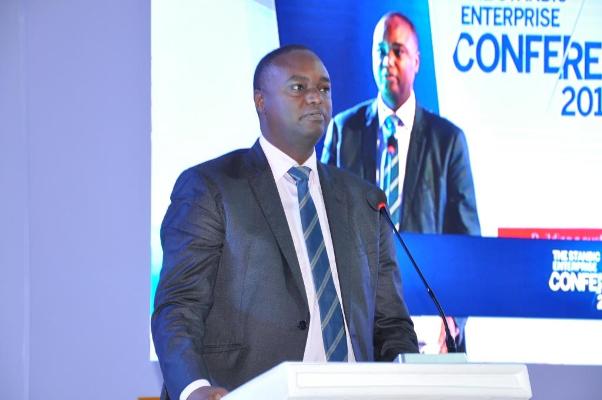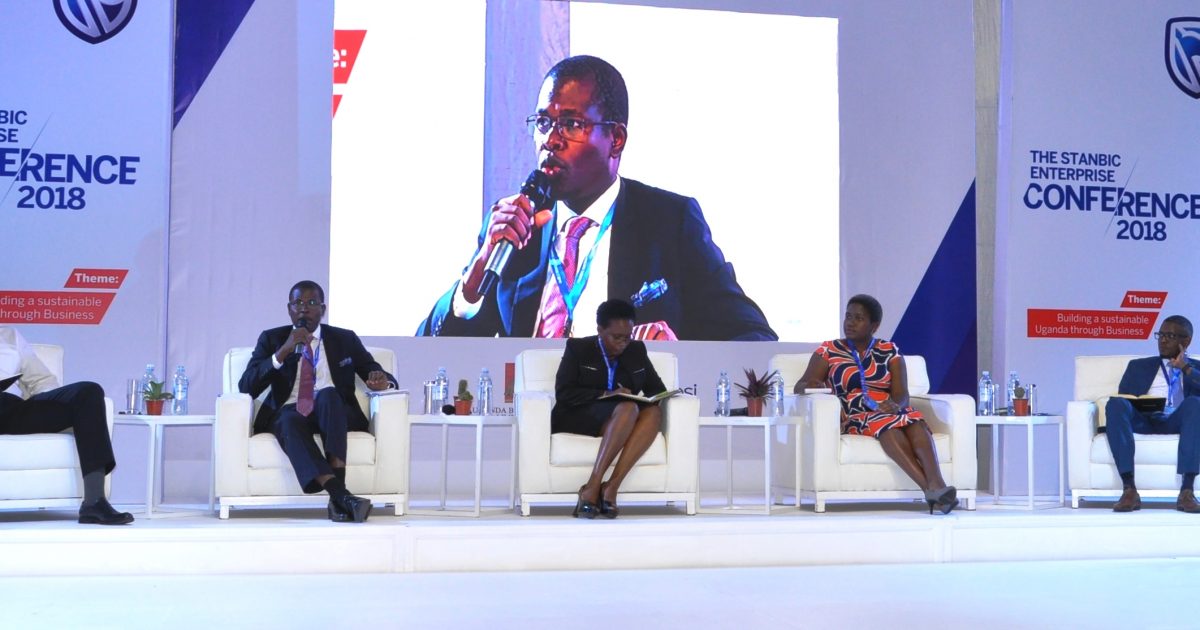As Uganda prepares to see her first oil in 2020, Small and Medium Enterprises (SMEs) have been urged to prepare as well to cash in-on the opportunities in the sector.
According to experts, US$15bn (Shs54.7 trillion)-US$20bn (Shs73 trillion) is expected to be invested in Uganda’s oil and gas sector in the next three-four years and this is where Ugandans should concentrate.
The winning formula was revealed during The Stanbic Enterprise conference that took place on the 4th April at Hotel Africana Kampala.
The conference organized under the theme ‘Building a sustainable Uganda through Business’ was held to give small but growing enterprises a platform to exchange ideas, experiences and network on how to grow their businesses in a professional and more sustainable manner. Studies indicate that despite Uganda being one of the most entrepreneurial countries in the world out of 100 enterprises that start business less than 10% live beyond their 3rd birthday.
Analysts urged SMEs to make thorough research to understand how the oil & gas industry operate, adding that the industry has strict regulations and standards in regard to geological setting, exploration and development, production and decommissioning.
Delivering opening remarks at the conference, Stanbic Bank Uganda Chief Executive Patrick Mweheire said. “Given their substantial contribution to GDP SME’s are key drivers of Uganda’s economic growth, however in order to harness their full potential there is need to support them by not only giving them access to affordable credit, it is equally important to provide them with innovative products, skills and training so as to promote sustainability.”
He added: “As Stanbic Bank along with our partners in the Oil and Gas sector, we recently made a giant stride in this direction by launching a business incubator project that will support Ugandan SME working in the Oil & Gas sector. An initial intake of 16 SME’s are being trained and given the management skills to grow and survive beyond the vulnerable initial stage of development and become long term sustainable businesses.”

Talking about some of the innovative products and services they have developed Steven Segujja, Stanbic Bank Head Enterprise Banking noted that, “As a bank we no longer believe our role is limited to providing financing but developing and offering innovative products and services that cater for the specific needs of the client. This is the reason why the bank is introducing a more versatile and responsive Enterprise banking solution which delivers banking at the doorsteps and fingertips of our client businesses.”
Stanbic’s Enterprise Banking previously known as SME banking has been significantly enhanced with features that go beyond just providing regular banking services now offering many more customer centric products such as Enterprise Direct, Enterprise Online, Point of Sale among others.
“Our objective is to grow a truly digital bank capable of meeting the needs and ambitions of our clients who want to grow their companies beyond being just small enterprises,” he added.
Delivering the keynote address Dr. Samuel Sejjaaka, a renowned academic and former Stanbic Uganda board member welcomed the initiative which he said would add value to all the SME’s present. “Most Ugandan Businesses rarely get the opportunity to interact with and learn from their bankers in this way, this tells me Stanbic does not just see you as a customer it believes you are valuable partners. I encourage you to take the learning from the various sessions and apply them proactively in your businesses.”
Communicate your products and services in a clear succinct manner. Quite often businesses use unnecessary jargons, making it hard for the other party to interpret what they exactly do.
SMEs should develop a safety culture such as conducting safety audits and inspections. This is possible and easy with the use mobile apps and software platforms.
According to Tony Otoa, Public Affairs Coordinator/ National Content Leader Total E&P Uganda; the industry demands constant training of staff by SMEs to meet the skilsl capabilities required.
Financial vigilance and compliancy is highly demanded in the industry.
“We have been instructed quite often to have contractors’ accounts frozen due non compliancy,” said James Karama, Head of Oil & Gas at Stanbic Bank.
SMEs were urged to enter into joint ventures for projects that require huge amounts of capital in addition to developing good networks with sector players and knowing the right decision makers in sealing business deals.
Business owners wishing to tap into oil cash were also asked to register with the National Suppliers data base as required by law to be considered for contracts in the sector.





